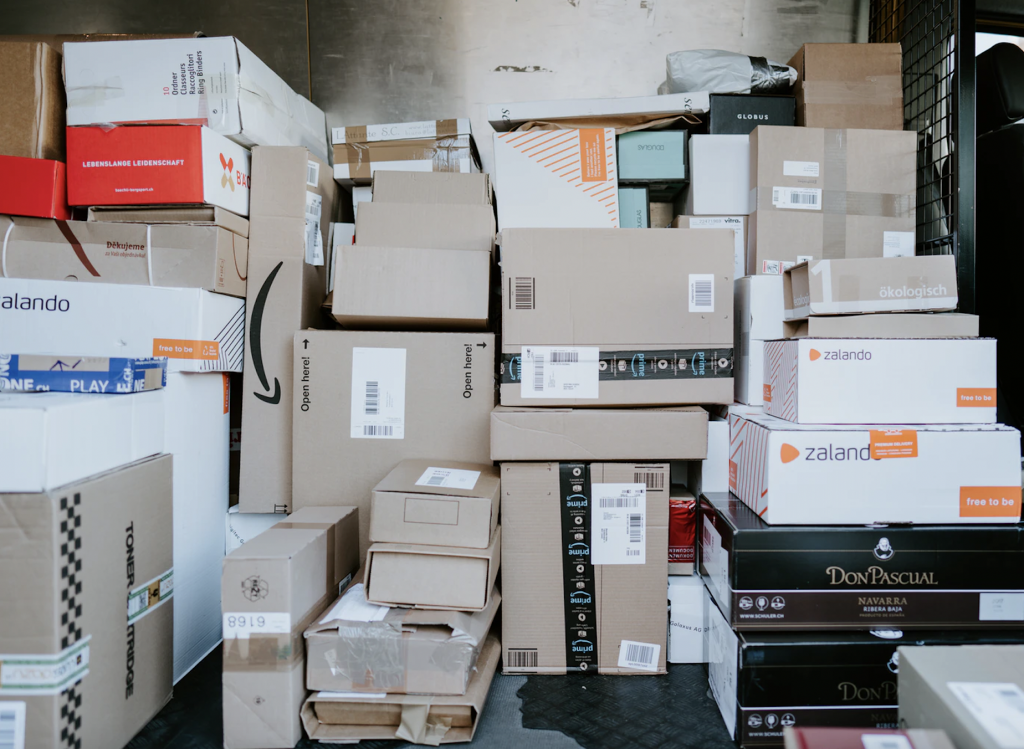Brands are currently faced with a number of issues when it comes to taxes and customs, following the conclusion of the Brexit transition period. “Hidden expenditures, [such as those that come] in the form of non-tariff barriers, will prove costly to business,” Baker McKenzie asserts in its “Brexit: Key Implications for the Consumer Goods & Retail Sector” report. Meanwhile, “Non-tariff barriers, such as new compliance paperwork and other administrative requirements, may also cause delays in clearing goods through customs upon entry into the UK and the EU.”
One such side effect of Brexit and the ways in which it is expected to impact e-commerce (and consumer behavior as a result) is the levying of import taxes on often-unsuspecting UK and non-UK consumers that purchase products online. As the Guardian recently reported, “Since January 1, [UK residents] buying goods from the EU – and vice versa – have faced import charges,” with the new rules putting “thousands of specialist online businesses at risk as consumers” – i.e., the importing parties – “on both sides of the Channel balk at having to pay the hefty import fees.”
While “online marketplaces such as Amazon collect the VAT on the retailer’s behalf and the item from Europe can be sent as before,” the Guardian’s Miles Brignall states that “UK consumers who have ordered items direct [from brands] have been hit by the charges” when their orders ring up to more than £135. The unexpected customs fees are prompting consumers to simply reject the goods they ordered, with one UK woman telling the Guardian that she was hit with a £93 customs bill after purchasing £292 worth of bedding from a Berlin-based company. “I wouldn’t have [placed the order] if I had known I would face 30 percent duties on top,” she said. And that appears to be the sentiment among a growing number of people, as the BBC notes that many have taken to “automatically rejecting the goods, refusing to pay the additional surcharges, and leaving couriers to take them away.”
Add this budding practice to the already-sweeping volume of product returns currently underway (Statista states that some 30 percent of items bought online are returned), and a problematic side effect of such newly-fashioned tax and customs practices comes into view.
“When goods arrive back at depots [in the UK and/or the EU], there is new customs paperwork to complete,” says Adam Mansell, head of the UK Fashion & Textile Association, who told the BBC that in addition to having to take possession of the goods, themselves, companies are now faced with an “export clearance charge, import charge arrival, import VAT charge and depending on the goods, a rules of origin document as well.”
As for how companies are coping with an influx of returns and the mass of administrative elements that come with that, some are being proactive; a number of UK-based companies, for instance, have stopped shipping to consumers in the EU, and vice versa, in order to sidestep these issues, at least for now. At the same time, BBC reports that others are simply being left with an excess of returns and costly bills. “Four major UK High Street fashion retailers are stockpiling returns in Belgium, Ireland and Germany,” the publication notes, while “one brand will incur charges of almost £20,000 simply to get its returns back” from customers.
Against this background, Mansell states that some UK-based companies are considering destroying products instead of attempting to get them back from the EU in order to cut costs. It is “cheaper for retailers to write off the cost of the goods than it is to deal with it all.” The potential result? “Either abandoning or potentially burning them.”
Such a notion is hardly unheard of. As we noted a few years ago, there is more to brands’ quiet-but-notorious destruction of unsold goods than an attempt to ensure that the products do not make their way in unauthorized distribution chains: the potential destruction of products may enable international brands that import goods into the U.S., for instance, to benefit from the “drawback” or the return of certain duties, internal and revenue taxes and certain fees collected upon the importation of products into the U.S., for instance, from France.
In accordance with U.S. Customs and Border Protection compliance guidelines and 19 USC s. 1313, the section of U.S. Code that addressed “drawback and refunds,” if imported merchandise is “unused and exported or destroyed under Customs supervision, 99 percent of the duties, taxes or fees paid on the merchandise by reason of importation may be recovered as drawback.” Given that the average duty rate for the import of a leather handbag, for example, is 16 percent, but can reach a maximum of 60 percent depending on the types of textiles at play, brands that can provide U.S. Customs with evidence that imported products have been exported or destroyed in accordance with the set timetable may be able to claim sizable refunds for unsold products.
The same is true in Italy (and many other countries), where brands that destroy unsold products can claim tax credits as a result. As the Wall Street Journal revealed in 2018 in connection with Italian menswear brand Stefano Ricci, “At the end of the year, employees gather unsold clothes into dozens of boxes bound for a special facility, where they are incinerated.” Mr. Ricci told the Journal that while the brand “would like to give some of the unsold goods to charity, the tax credit ties the company’s hands.”
Ultimately, the BBC notes that “retailers in the UK and Europe that trade across the new customs borders are all still adapting to the rules,” as are customs agents and shipping companies. As companies face both tariff and non-tariff impacts, companies are encouraged to “scale up customs team/expertise,” per Baker McKenzie, in order to ensure a firm handle on their supply chains, including “where goods are moved from and to, and what manufacturing takes place,” as well as “the additional duties and financial impact on supply chains” in order to determine how to mitigate issues, which stand to see companies’ faced with goods blocked at borders, tax penalties, and not to be overlooked, unsatisfied customers.











